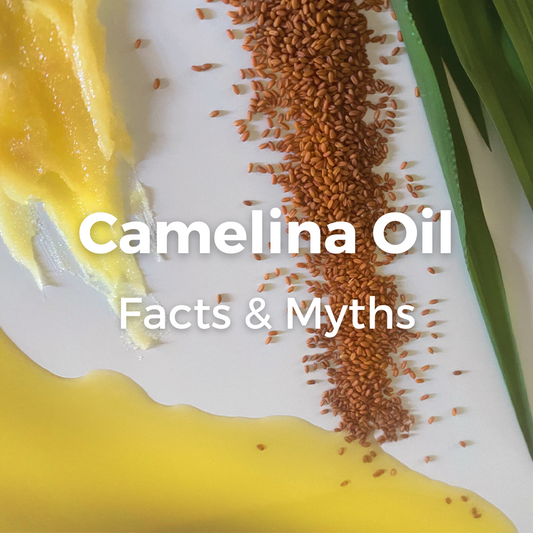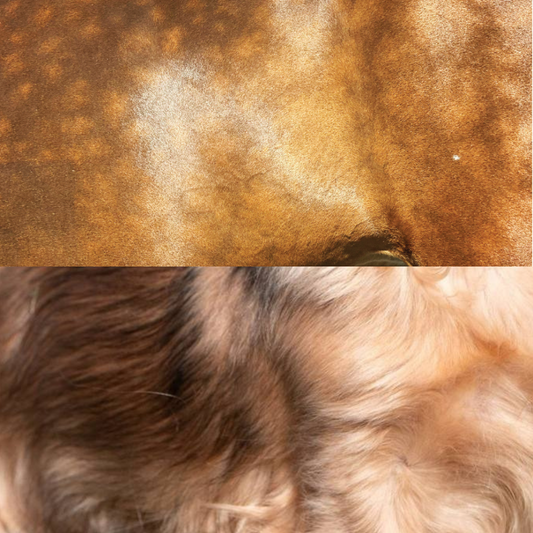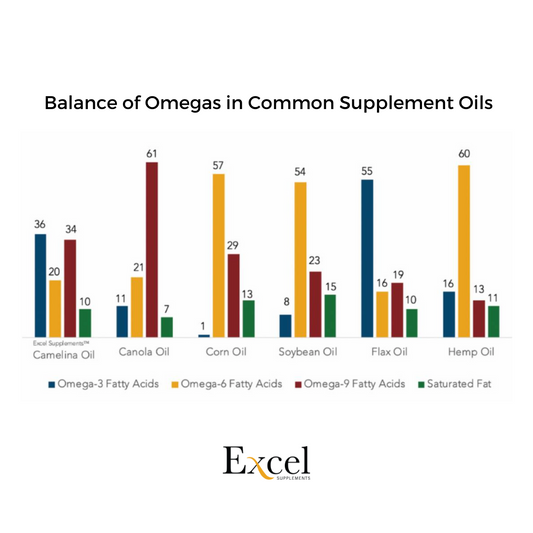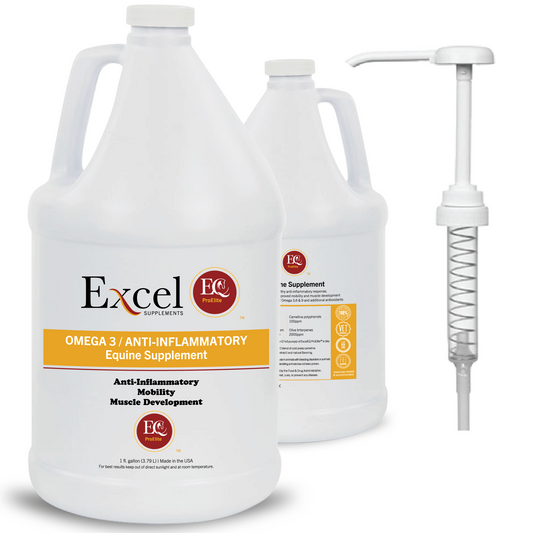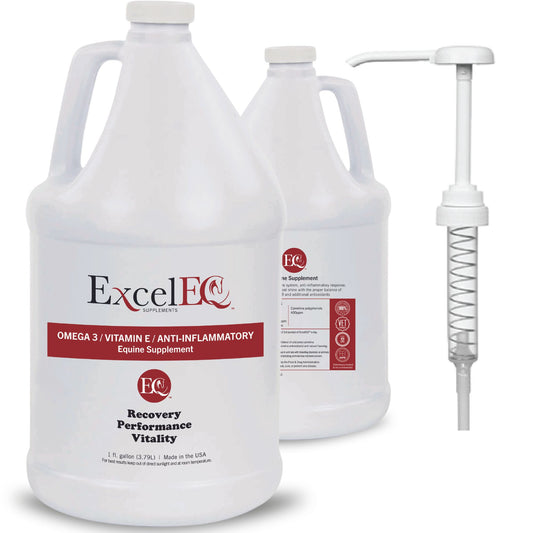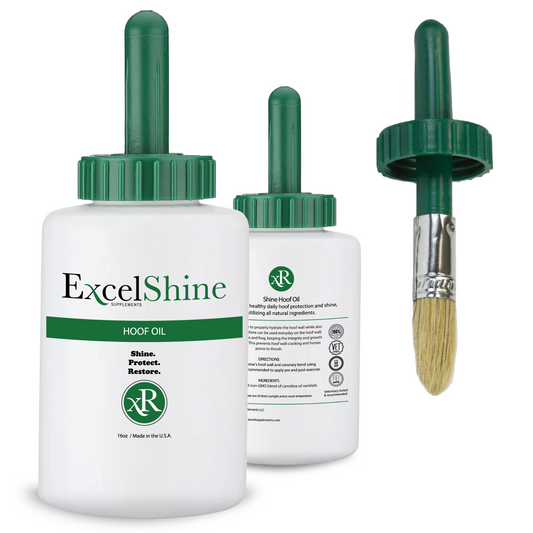The best Horse Supplements for Stomach and Hind Gut Ulcers
Share
When researching ulcers in horses, I discovered a wealth of valuable information from Cynthia Collins, a renowned dressage rider, and freestyle designer. Cynthia has over 10 years of experience dealing with ulcers in horses, and her insights are invaluable for horse owners facing this challenge.
Below, I share her knowledge and experiences, along with some effective treatments and horse supplements like ExcelEQ, which is rich in Omega 3 and natural Vitamin E—key elements for promoting overall equine health.
Understanding Horse Stomach Ulcers
Stomach ulcers are a common issue in performance horses, affecting nearly 60% of them, according to veterinarian studies . Foals are also at risk, with up to 57% developing ulcers within their first few months of life . These ulcers often develop due to stressors like travel, exercise, and changes in routine, even in horses not engaged in strenuous activities .
Symptoms and Diagnosis of Horse Ulcers
Ulcers can cause various symptoms, including changes in behavior, spooking, and reluctance to work. These signs are often mistakenly attributed to a horse’s temperament rather than a medical issue. Diagnosing ulcers typically involves a combination of veterinary consultation and test treatments, as scoping may not always be necessary .
Effective Treatment for Horse Ulcers
1. Reduce Stomach Acid Production
The first step in treating horse ulcers is reducing the amount of stomach acid. Cynthia recommends using Omeprazole, a proven treatment that effectively reduces acid production for 24 hours . This allows the stomach lining to heal, reducing the likelihood of ulcer recurrence. Generic Omeprazole is available at a lower cost from various sources, making it a practical option for long-term management.
2. Absorb Excess Stomach Acid
In addition to reducing acid production, it's essential to absorb excess stomach acid to prevent further damage. Products like Tums, Maalox, and U-Gard can quickly neutralize stomach acid, providing immediate relief. However, these should be used in conjunction with Omeprazole for the best results .
3. Provide Continuous Access to Hay
Horses produce stomach acid continuously, so keeping their stomachs full is crucial. Providing free-choice grass hay 24/7, along with some alfalfa hay for its calcium content, can help neutralize stomach acid naturally. Cynthia feeds her horses alfalfa/grass pellets before exercise to prevent acid build-up .
4. Incorporate Healing Foods and Supplements
Certain foods and supplements can aid in healing and maintaining a healthy stomach. Cynthia has had success with dried cabbage (rich in L-Glutamine), raw pumpkin seeds (high in Nitric Oxide), and flax seeds (a source of Omega 3) . These can be added to the horse’s diet to support recovery and prevent future ulcers.
ExcelEQ: A Supplement for Ulcer-Prone Horses
ExcelEQ is an excellent horse supplement for managing ulcers due to its high content of Omega 3 and natural Vitamin E. These nutrients support overall gut health and help in healing the stomach lining. Regular use of ExcelEQ, alongside a balanced diet and ulcer management strategy, can contribute to a healthier, happier horse.
Conclusion
Managing and preventing ulcers in horses requires a comprehensive approach that includes reducing stomach acid, absorbing excess acid, maintaining constant hay intake, and incorporating healing foods and supplements. By following these steps and using quality horse supplements like ExcelEQ, you can help your horse overcome ulcers and thrive.
For updated information on equine care, trending topics and discount opportunities follow us on social!
Follow us on Instagram: @excelsupplements
Keep up to date with us on Facebook: Excel Supplements
For more detailed information on horse ulcers and treatments, refer to the sources listed below.
Sources:
- Veterinary Study on Horse Ulcers: Oglesby, Robert N., DVM. “Gastric Ulcers in Horses.” HorseAdvice.com.
- Research on Stress-Induced Ulcers: McClure, Scott, DVM, PhD. "Ulcers in Recreational Horses." JAVMA, 2005.
- Cynthia Collins' Experience with Ulcers: Collins, Cynthia. "Luna Tunes Freestyles."
- Omeprazole for Ulcer Treatment: USDF Connection; Oct. 2003.
- Acid Absorption Methods: Various Antacid Products.
- Hay and Ulcer Prevention: Hothersall, Becky, PhD. “Equine Learning and Cognition,” University of Veterinary Science.
- Healing Foods for Horses: Collins, Cynthia. "Luna Tunes Freestyles."

